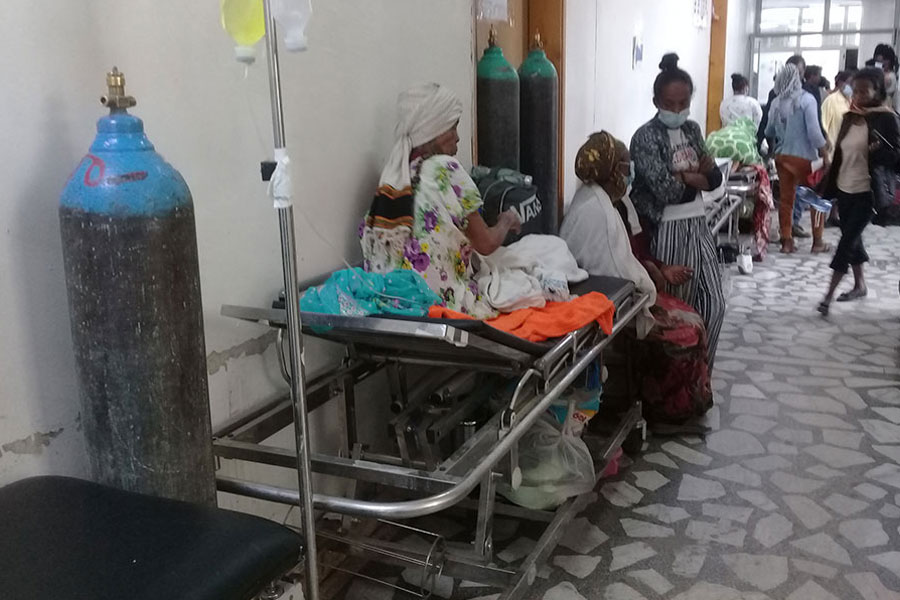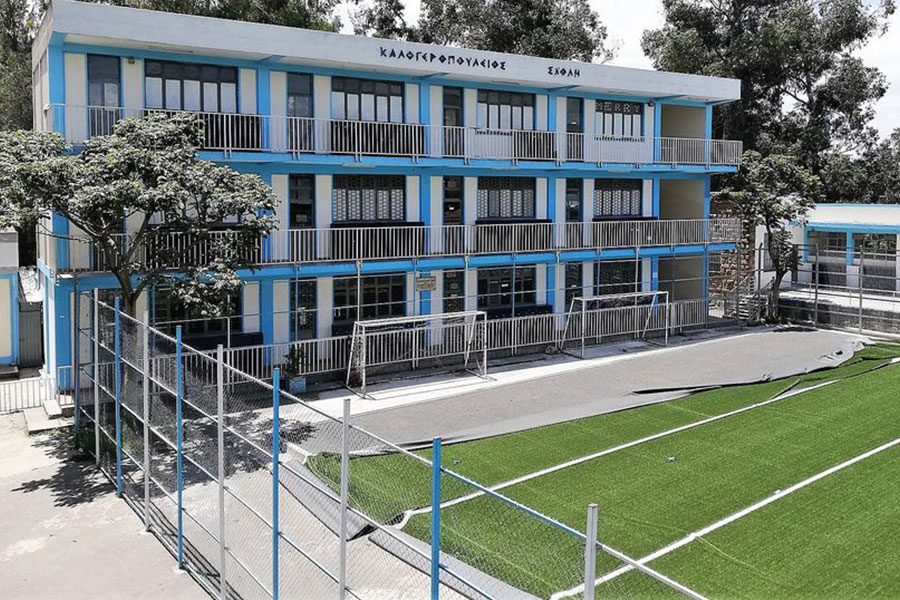
It was on EBS TV sometime back - an interview of a couple who sat side by side. It was not a photo op. One could clearly see the ease with which the woman leaned on her husband’s bosom and how they talked in fluid conversation. The duo recounted their half-century-long relationship with glowing cheeks and sparkling eyes, as he assuredly swore how he could not possibly imagine a life without her.
I watched her eyes meet his, unwavering, bespeaking her implicit faith in him, as he returns her unwavering gaze with kindness. This was the touchstone of being a couple.
They talked of their memory of Wello Sefer, Bole district, and the social relations that embraced and served as a broader grounding for their enduring relationship. The woman affirmed with a grimace that a big part of this was the Idirthey were a part of.
She talked about how death in their neighbourhood is synonymous to a wedding, as everyone is taken care of in times of financial and psychological distress. It ended with the man’s radiance as he struggled to impart his exhilaration when he raised the Idir’ssplendid hospitality before and after a funeral and how there are no comparisons elsewhere.
It was a bittersweet interview as the conversation eventually stumbled upon the “bombed” look of the neighbourhood. It was nothing other than Addis Abeba’s inter-city renewal and its ensuing resettlement programmes, whose ramifications are disentanglement of communities, thinning social capital and interpersonal ties.
Is the couple heralding the death of one of the built-to-last, age-old informal associations in Ethiopia, a form of indigenous social insurance whose quintessence is to help members not only during bereavement but also in times of joy? Is this the uninterrupted concomitant phenomenon of urbanised Addis Abeba, beginning in the early part of the 20th century and spreading rapidly since the time of the Italian occupation?
In the Western world, funerals were handled at home until the 20th century; such death rituals are now replaced with greater fear of death and the dead body, according to Philippe Ariès, French historian. Medicine and the death care industry took over management of the dead. Increasingly, death became hidden from public view. No longer familiar, it became threatening and horrific.
In contrast, mourning in Ethiopia follows certain patterns that facilitate the public expression of grief and provide support for the bereaved. As it was in medieval Europe, death is a public ritual, involving the presence of family, friends and neighbours, as well as food and drinks. This was in large part thanks to the socioeconomic association known as Idir.
As a result, death was public, which is comforting to mourners.
”Grief was expressed in an open and unrestrained way that was cathartic and communally shared, very much in contrast with the modern emphasis on controlling one’s emotions and keeping grief private,” write Daniel Wojcik and Robert Dobler, professors of folklore in a piece written for The Conversation.
Unfortunately, this dynamic informal relevance is not adequately recognised and extended to formal associations in modernising Addis Abeba. First and foremost, as age-old Idirsare rooted out from inner-city neighbourhoods, institutional memory and members’ specific social capital is drained.
People-focused self-help groups are a hallmark of togetherness, transparency and accountability; school to the political preconditions of democracy tends to follow Ethiopians wherever they are, as in the diaspora community tuned to new cultures. No less interesting is a close cousin of Idir, Iqub, established by a small group of people to provide rotating funds for members to save and receive credit.
This is even as Idir’spotential to contribute to the non-political precondition of democracy in lifting the economic power of members does not look to be fully capitalised on. Still, its depleting currency as a useful association is not great news to the traditional institutions, values and norms that contain a great deal of wisdom and history.
No wonder that Youssou N'Dour, the Senegalese artist, said that people should know more of Africa in terms of its joie de vivre, its enjoyment for life. Despite the images that one knows about Africa - the economic poverty, the corruption - there is a joy to living in a community.
Hopefully, Idir’sdynamic and people-focused vibe continues to hold our joie de vivrewith an expanding scope, perhaps re-imagined to meet modern needs but retaining its traditional values. This can be by strengthening kebeles, the lowest administrative units, which should liaise with Idirsand take the lead in availing functional spaces and encouraging people in the neighbourhood to join.
It is better to stay cohesive, outside of the cold and rational relationships modern bureaucracies establish. The couple on EBS, who found community relations critical to a wholesome private life, were a testament to this. It is why we should work to ensure that these associations spill over into social or economic development.
PUBLISHED ON
Oct 03,2020 [ VOL
21 , NO
1066]


Verbatim | Sep 11,2020

Sunday with Eden | Jun 14,2025

Fortune News | Feb 15,2020

Fortune News | Oct 21,2023

Radar | Mar 09,2019

Radar | Sep 26,2021

Fortune News | Jun 10,2023

Exclusive Interviews | Feb 15,2020

Sunday with Eden | Oct 01,2022

Sunday with Eden | Mar 26,2022

Dec 22 , 2024 . By TIZITA SHEWAFERAW
Charged with transforming colossal state-owned enterprises into modern and competitiv...

Aug 18 , 2024 . By AKSAH ITALO
Although predictable Yonas Zerihun's job in the ride-hailing service is not immune to...

Jul 28 , 2024 . By TIZITA SHEWAFERAW
Unhabitual, perhaps too many, Samuel Gebreyohannes, 38, used to occasionally enjoy a couple of beers at breakfast. However, he recently swit...

Jul 13 , 2024 . By AKSAH ITALO
Investors who rely on tractors, trucks, and field vehicles for commuting, transporting commodities, and f...

Oct 25 , 2025
The regulatory machinery is on overdrive. In only two years, no fewer than 35 new pro...

Oct 18 , 2025
The political establishment, notably the ruling party and its top brass, has become p...

Oct 11 , 2025
Ladislas Farago, a roving Associated Press (AP) correspondent, arrived in Ethiopia in...

Oct 4 , 2025
Eyob Tekalegn (PhD) had been in the Governor's chair for only weeks when, on Septembe...